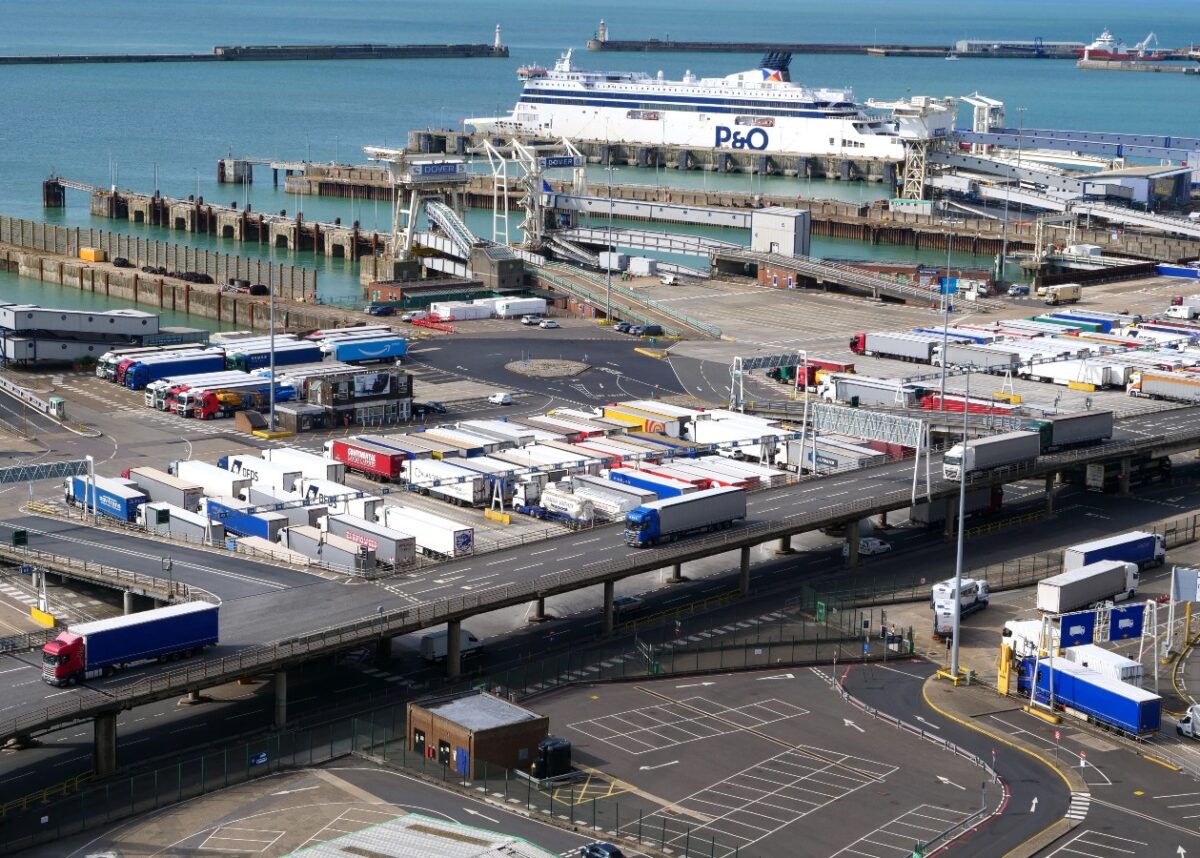Terence Huw Edwards, Loughborough University and Mustapha Douch, University of Edinburgh
After the UK formally left the EU at the end of 2020, it experienced a dramatic fall in trade. The media was full of stories about lengthy hold-ups at customs and empty shelves in supermarkets. This has included cliff-edge falls in exports of agricultural produce like beef, milk and cheese, for example, after the UK and EU failed to agree an alignment in standards that would have enabled free trade to continue.
There has since been some improvement, with the latest figures showing that exports and imports with the EU in the three months to August 2021 were better than the three months before. Equally, however, there is evidence that the UK has lost market share in Europe due to Brexit, as the EU’s imports from other countries have picked up following the COVID crisis.
Yet the raw export and import figures alone can only tell you so much about what has happened to British trade. You need to disentangle the effects of Brexit from from a myriad of other variables that can skew the numbers – not least COVID. This is a complicated problem that will take some time to resolve, even though the large relative fall in UK exports to Europe suggests that Brexit is the main culprit.
At the same time, however, it would be wrong to focus too much on 2021 when looking at the effects of Brexit on UK trade. We have just published a new paper looking at how it affected UK trade between 2015 and 2018. It shows for the first time that fears about Brexit weakened the UK’s trading position long before the vote to leave the EU even took place. It also points to a long-term adjustment in trading relationships that will continue for many years to come.
Our approach
We originally started examining the effects of the Brexit vote back in 2017. Using the same method that has in fact just won the Nobel prize for economics, we sought to screen out other effects on the data by comparing the UK’s exports to particular EU countries before and after the June 2016 referendum with other pairs of comparable trading nations. We chose pairs of nations to compare from a large pool of possibilities, for example using trading between Japan and South Korea to compare France and the UK.
When we first published results in late 2018, we reported that even shortly before the vote in 2016, worries about Brexit were already reducing Britain’s trade with the EU and elsewhere. This was consistent with an earlier study by another team of researchers into the effects of the vote on British GDP, as well as subsequent studies looking at foreign direct investment and productivity.
Since then, we have extended and revised our study considerably. Unlike almost all other studies, we now take account of the likelihood that Brexit worries started have an economic effect even further back in time – around the time of the surprise Conservative general election win in May 2015. Indeed, Britain’s goods exports to non-EU countries started falling as well.
The likeliest explanation for these results is that UK goods exporters are highly dependent on EU countries as part of their supply chain. Even a modest increase in uncertainty surrounding such chains seems to have persuaded customers to look elsewhere – irrespective of whether they are in the EU. Notably, Britain’s imports of goods from the EU and elsewhere only began declining after the referendum.
By the time we get to March 2018 in our new paper, Britain’s goods exports to the EU were already 20% to 25% below trend, while its goods exports to non-EU countries were 15% below trend. We also extended our analysis to services, which account for about half of Britain’s exports. Here we only have data on aggregate exports, rather than on trade with specific partners, but again we find that British exports started falling in 2015, albeit more after the referendum, and were about 8% below trend by early 2018.
What this means
The falls in exports to the EU since January are part of a longer, larger decline dating back to 2015. Changing trading patterns takes time for firms to find new partners or renew or terminate contracts. That means that much of the effect of Brexit on trade started with importers in other countries anticipating difficulties and making changes to their suppliers far in advance of the UK formally leaving the EU.
Because these are such slow processes, it is likely that there will continue to be adjustment over many years to come. So despite the UK’s deals with non-EU countries (which, before the Australia trade deal, were basically rollovers of existing deals), its competitiveness worldwide has been hit by the effects of Brexit on UK supply chains.
A caveat should be that some of the fall in demand for Britain’s produce might be offset by a cheaper pound. Sterling fell sharply in the run-up to the referendum, and although it has stayed around the same level since 2016, many believe it will fall further in future as a result of Brexit. If so, that could mean more demand for British exports, but it would also mean imports will be more expensive. So while, say, Australian wine might no longer bear tariffs, its price could still increase overall. At a time when there are already concerns about inflation, this is another factor that could drive prices higher.
Terence Huw Edwards, Senior Lecturer in Economics, Loughborough University and Mustapha Douch, Lecturer in Economics, University of Edinburgh
This article is republished from The Conversation under a Creative Commons license. Read the original article.












